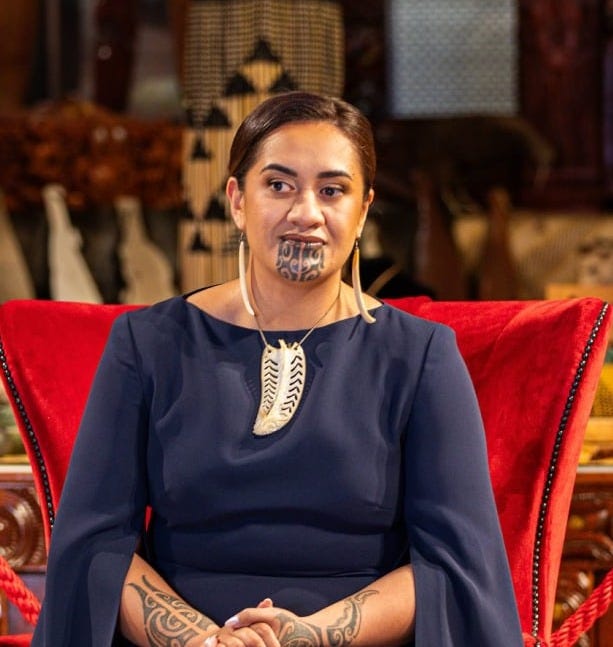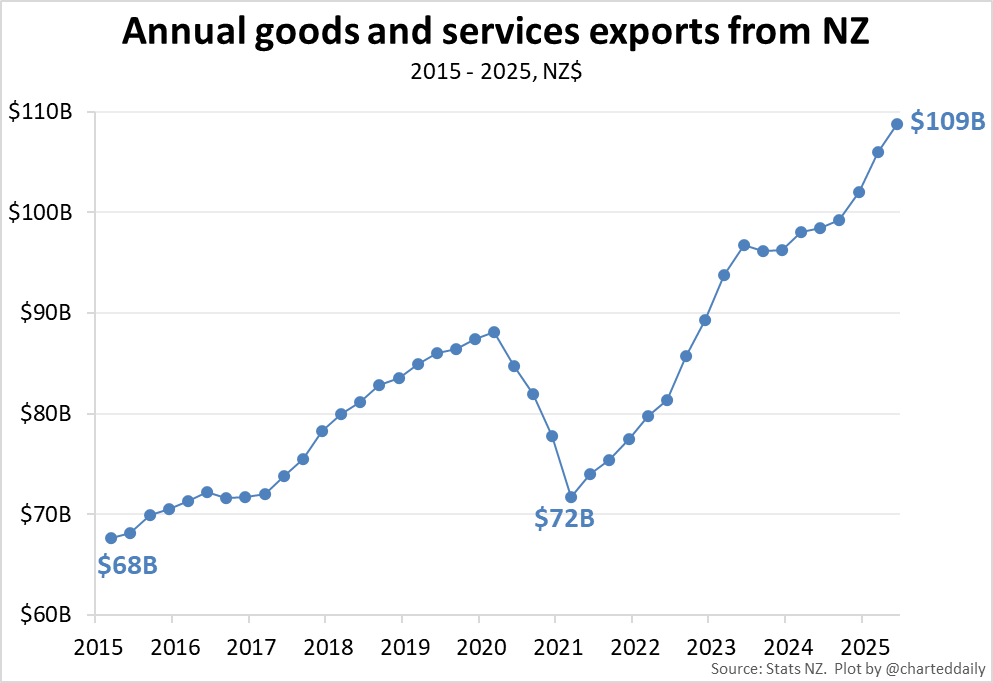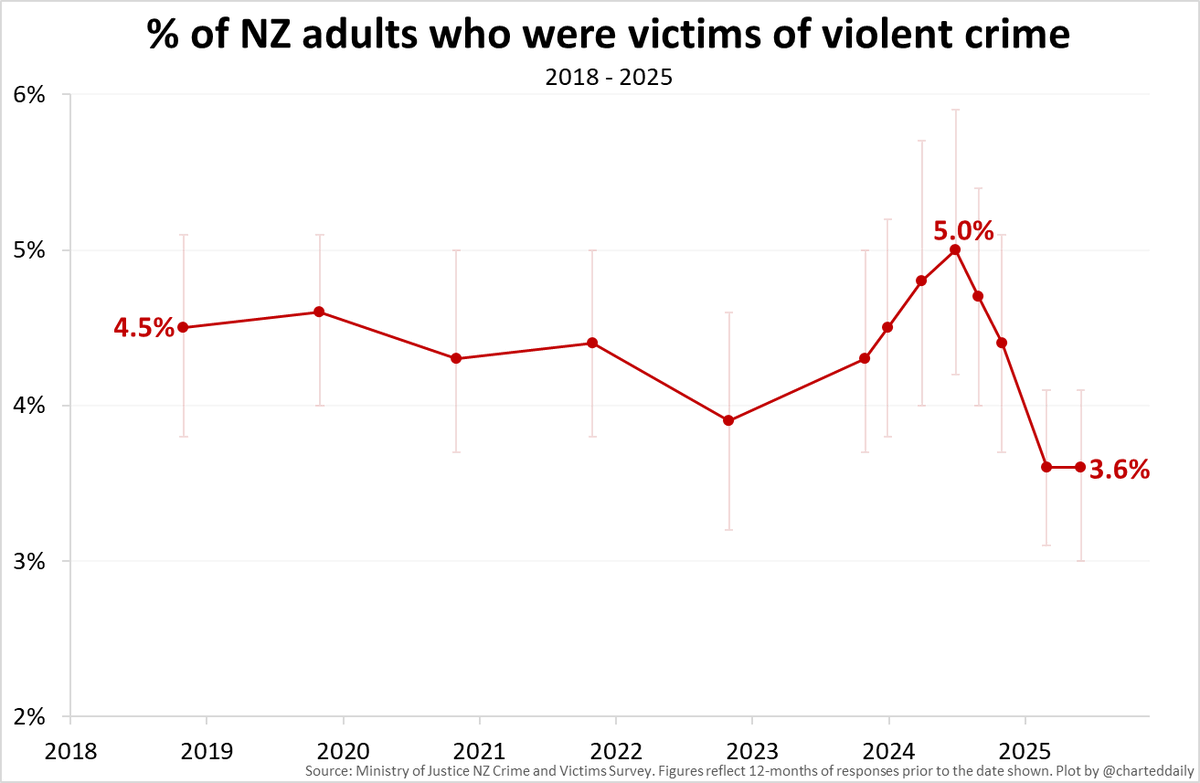Māori Queen sets tone for leadership
Māori Queen Te Arikinui Kuīni Nga wai hono i te po, speaking for the first time since her coronation at this year’s Koroneihana, delivered a deeply emotional and hopeful national address that struck a reassuringly calming and measured chord. She reflected on the past year of grieving her father before moving on to messages of moving beyond resistance.
“Being Māori is not defined by having an enemy or a challenge to overcome ... Being Māori is speaking our language. It is taking care of the environment. It is reading and learning about our history. It is the choice to be called by our Māori name. There are many ways to manifest being Māori, not just in times of protest.”
Her remarks were a sharp contrast to Te Pāti Māori’s perpetual framing of anger and grievance. Instead she unveiled two economic initiatives to empower Māori: an upcoming global summit dubbed Ōhanga Ki Te Ao, to build international partnerships, and Tahua Kotahitanga, a seed-funded capital initiative by iwi Māori aimed at safeguarding Māori-led projects. She argued against the idea that economics and commerce are not Māori concepts pointing to her tūpuna Potatau Te Wherowhero and the trading routes along the Waikato River.

Benjamin “Bussy” Doyle’s career ends in Parliamentary rage-quit
Benjamin Doyle’s resignation from Parliament was less a graceful exit and more the predictable fallout of a crisis entirely of his own making. New Zealand’s first openly non-binary (eye roll) MP’s parliamentary career descended rapidly into disarray with the surfacing of an Instagram account called @BibleBeltBussy, including captions like "bussy galore" featuring a photo of Doyle with his child. The term “bussy,” is a portmanteau for “boy” and “pussy”. The backlash, anticipated and entirely avoidable, was immediate and savage and he admitted to being “politically naïve” for not deleting the account when advised to do so.
He proclaimed, “I refuse to be disappeared by hate,” yet mere months later he has reversed course completely, citing death threats and pressure on his whānau as reasons to step down. Police confirmed that some reports related to Doyle had been investigated, with four individuals receiving formal warnings for harassing or harmful behaviour. It is worth noting that warnings via the Harmful Digital Communication Act are easy to come by and handed out like lollies.
As political commentator Barry Soper bluntly observed, “The only thing they've done is be the first non-binary person that's entered the corridors of power … and that's about it.”
I wrote this piece for the New Zealand Herald back in April denouncing Doyle and Green leader Chloe Swarbrick using gays and lesbians as a shield for bad behaviour. Given neither Doyle nor Swarbrick are gay (both are bisexual and Doyle gender bends) the whole charade was frankly insulting. As one senior MP remarked to me last week “the guy is a total fraud” pointing out he is garden variety pale, male, and heterosexual and LARPs around in skirts and a bit of nail polish pretending he isn’t married with a kid.
🇬🇧 Angela Rayner’s shock exit and David Lammy’s elevation
In a dramatic twist, UK Deputy Prime Minister Angela Rayner resigned after an ethics inquiry found she had underpaid around £40,000 in stamp duty when purchasing a flat in Hove. Although the findings confirmed she acted in good faith, Rayner was deemed to have breached the ministerial code for not seeking proper tax advice, all of which made her position untenable.
Prime Minister Sir Keir Starmer moved swiftly to do a major cabinet reshuffle. David Lammy, previously Foreign Secretary, was promoted to Deputy Prime Minister and Justice Secretary, also taking on the title of Lord Chancellor. Meanwhile, Yvette Cooper moved from Home Secretary to become Foreign Secretary, and pro-Palestine activist Shabana Mahmood took over the Home Office.
Foreign Buyer Ban loosened, Winston Peters calls it “very, very, very minor”
The government has enacted a partial reversal of the 2018 foreign buyer ban, permitting wealthy non-resident holders of the Active Investor Plus (Golden Visa) to buy or build one property worth at least NZ$5 million and no longer forcing them to live in New Zealand for six months of the year. This carve-out is intended to lure high-net-worth investors back to New Zealand amid an economic downturn, with the potential to inject up to NZ$1.8 billion via 301 visa applications already received. Importantly, the cap focuses only on the ultra-luxury end of the market; properties that make up less than 1% of the housing stock, mostly in Auckland and Queenstown.
Winston Peters, a staunch advocate for the original 2018 ban, defended the tweak as negligible and consistent with his party’s principles. In media outlets and on X, Peters emphasised that “the foreign buyers ban on housing remains,” describing the change as a “very, very, very minor” adjustment aimed at attracting much-needed investment.
Chris Hipkins seems to think there are loads of Kiwis looking for $5 million dollar properties and that they would miss out on houses that would be “sitting empty most of the time.” He does not hold the same concern about his own second property (a beach house) also being empty most of the time.
Clark & Key in Beijing
Former New Zealand Prime Ministers Helen Clark and Sir John Key attended China’s highly choreographed Victory Day Parade, marking the 80th anniversary of Japan’s surrender in WWII. The spectacle was as much about military showmanship as historical commemoration.
Helen Clark termed her presence a “line call”. A delicate balancing act of personal conviction and past diplomacy. She stressed that she attended in a personal, not official, capacity, citing her contributions in deepening New Zealand–China economic ties as context. She notably avoided meeting Putin or Kim, calling it “a relief” not to do so. John Key, also private and under no government banner, joined Clark among 70 international invitees to the event.
But not everyone saw nuance. Renowned China-watcher Anne-Marie Brady warned the appearance of democratic former leaders at what many view as a Beijing propaganda exercise lent moral equivalence and misplaced validation to a China-centric authoritarian axis. In her view, the parade sought less to memorialise WWII and more to ritualise a vision of regional power aligned with autocratic regimes.
Tākuta Ferris posts racist Instagram story, Willie Jackson calls him out
Te Pāti Māori MP Tākuta Ferris shared an Instagram story this week, featuring a photo of Labour’s Arena Williams and volunteers of diverse ethnicities. Ferris captioned it: "This blows my mind", followed by, “Indians, Asians, Black and Pakeha campaigning to take a Māori seat from Māori.”

Under uncharacteristic pressure from media, Te Pāti Māori issued an apology and instructed Ferris to delete the post. Co-leaders Debbie Ngarewa-Packer and Rawiri Waititi clarified that the sentiments did not reflect the party’s values.
Among the outraged, Labour's Willie Jackson, was particularly scathing. He remarked that Ferris’s remarks were not only racist but fundamentally "offside" with the broader kaupapa being represented on the marae. Jackson insisted Ferris needed to “grow up,” that “Māori have relationships with all races,” and that Labour’s campaign, staffed by a broad coalition of supporters, was one to be celebrated, not disparaged.
It was nice to see the overt racism regularly demonstrated by Te Pāti Māori called out for once.
RBNZ: fall out and independence
Bernard Hickey, writing in
The Kākā by Bernard Hickey, argues that National is undermining the independence of the Reserve Bank by tying its own credibility to GDP growth and leaning on monetary policy to deliver it. He suggests Nicola Willis’s budget cuts and the government’s pressure on the RBNZ Board represent a shift away from the long-cherished arm’s-length model. “Luxon and Willis have made GDP growth their single measure of success,” Hickey writes, warning that the RBNZ risks becoming a political instrument to stimulate short-term economic numbers rather than a guardian of monetary stability.
But not everyone buys Hickey’s narrative that this erosion started with the current government. Economist Leonard Hong calls Hickey’s analysis “very disingenuous,” arguing that the politicisation of the RBNZ began under Labour in 2017 when Grant Robertson expanded its remit beyond its core objectives, pointing to the inclusion of climate-change and Māori objectives in the Bank’s mandate. He cites Harvard economist Kenneth Rogoff’s warning:
“On the political side, and particularly after the financial crisis, the public has come to expect central banks to take on a dizzying array of responsibilities, some far beyond their power or remit.”
According to Hong, this mission creep under Governor Adrian Orr, with the passive support of then-Chair Neil Quigley, was the first blow to the RBNZ’s institutional credibility. He argues that if we want to restore the “old, boring, competent RBNZ,” we have to be honest about when the decline started.
Barbara Edmonds gets the facts wrong
Labour’s finance spokesperson, Barbara Edmonds, openly acknowledged a significant but unintentional misstatement and blamed her staff for the oversight, after incorrectly asserting in a Facebook post that Reserve Bank Chair Neil Quigley was on the Monetary Policy Committee (MPC).
Despite the error, Edmonds leveraged the moment to critique the Finance minister:
“It’s time for Nicola Willis to be honest with the public about what she knows, what she has been told about the situation and when. What actions has she taken to manage the situation?”
No criminal charges over original McSkimming allegation
In a startling development, former Deputy Police Commissioner Jevon McSkimming will face no criminal charges over an initial sexual misconduct complaint made by a former female police staffer. Assistant Commissioner Mike Johnson confirmed that, after exhaustive investigation, including a review by an independent King’s Counsel and Crown Law-appointed barrister, the evidential threshold wasn’t met and prosecution won’t proceed on that front. However, the probes did lead investigators to stumble on allegedly objectionable material, including content depicting child sexual exploitation and bestiality, on McSkimming’s work devices.
PM Luxon labels Neo-Nazi Thomas Sewell “an awful human”
Prime Minister Christopher Luxon didn’t mince words when asked about neo-Nazi figure Thomas Sewell, who was born in New Zealand but holds Australian citizenship. Referring to him as “a pretty awful human being,” Luxon stopped short of supporting calls for his deportation, emphasising that Sewell is an Australian citizen and thus “Australia’s problem.”
Sewell stands accused of violent disorder, affray, assault, and allegedly storming Camp Sovereignty, an Indigenous cultural site in Melbourne. A petition calling for him to be deported to New Zealand has attracted close to 100,000 signatures. While Australian authorities are investigating and the Australian Home Affairs Minister has indicated Sewell “clearly hates modern Australia.”
Given the monster Australian we have locked up after he slaughtered 51 people in Christchurch mosques, the Australians can keep this Sewell guy.
Trouble for Tory: Labour’s Reweti Lands Iwi Backing in Māori Ward Battle
Wellington’s Māori ward race just got spicy. Matthew Reweti, Labour’s candidate and local boy from Pipitea Marae, has the “full and exclusive endorsement” from Te Āti Awa Nui Tonu, with the signatures of the big guns from Taranaki Whānui, the Wellington Tenths Trust, and the Palmerston North Māori Reserve Trust.
Their letter was unequivocal:
“He embodies our tikanga, upholds our mana motuhake, and will represent our people with integrity, strength, and vision. We call upon all those who value Te Tiriti, respect mana whenua, and believe in the enduring rights of tangata whenua, to stand with us in supporting Matthew Reweti.”
For Mayor Tory Whanau, who is attempting the risky double-act of running for the Māori ward as a Green while holding the chain of office, this is a problem. With iwi leadership effectively telling their people “vote Reweti,” this suddenly looks like a real fight.
🇬🇧 Armed police detain Graham Linehan
Comedy writer Graham Linehan (of Father Ted and The IT Crowd fame) was dramatically detained at Heathrow this week after returning from the US, accused of “inciting violence” over posts on X where he suggested trans women in women’s spaces should be removed. Linehan was met by five armed police and treated “like a terrorist” before being released on bail with a gag order banning him from posting online. The arrest has ignited a firestorm: Met Police Commissioner Mark Rowley defended it as legally justified but used the case to call for clearer laws so police aren’t forced to referee culture wars. Meanwhile, J.K. Rowling called it “deplorable,” Elon Musk labelled the UK a “police state,” and Nigel Farage warned of creeping totalitarianism. Even Keir Starmer weighed in, telling police to focus on real crime.
In short - other stuff that happened:
- The Law Commission has dropped its long-awaited Ia Tangata report, and it’s a call to explicitly ban “discrimination” against trans, non-binary, and intersex people.
- Former National MP Harete Hipango is now a member of New Zealand First.
- The Act Party says: “Paris needs to change, or New Zealand needs to leave.”
- The Government has announced a funding increase for eating disorder services, along with a refreshed strategic approach. The $4 million annual boost brings total funding for eating disorder services to more than $23 million each year.
- Smiths City stores across New Zealand have been placed into voluntary administration.
- Rumours of President Donald Trump’s death are greatly exaggerated.
I highly recommend following ChartedDaily on X. They tweet regular simple graphs of New Zealand’s economy, business environment, and politics.

Click to view

Click to view
Ani O'Brien comes from a digital marketing background, she has been heavily involved in women's rights advocacy and is a founding council member of the Free Speech Union. This article was originally published on Ani's Substack Site and is published here with kind permission.


7 comments:
Benjamin Doyle is simply a world class nut-job with a constituency of about 1000 on a really good day.
A great summary of the week, thanks Ani, but did you miss the PM's stellar performance over Amazon/IKEA?
SO sad about Benjamin Doyle resigning. We need people with expertise relevant to running a country in which context a Waikato Master's thesis entitled “Mana Takatāpui: Self-determination for queer rangatahi Māori” is SO relevant.
Seriously, let's all ask ourselves "What does this candidate have to offer in terms of expertise relevant to governing NZ?" before we tick any boxes on election day.
Doyle will never be paid a salary again.
What useful skills does he have that any employer would pay him for ?
Can we safely assume that he will on the dole for the rest of his life, just like he has been sucking on the taxpayers tit for the last few months ?
Something to ponder, Ani.
An activist opposed to Israel’s war in Gaza helped co-ordinate and carry out the repeated vandalism – via bright red paint “bombs” – of electorate offices belonging to National Party officials, including Prime Minister Christopher Luxon.
Now, nearly two years later, she has appeared in the Auckland District Court asking for a discharge without conviction so that the admitted crimes won’t stymie her career.
But a judge recently denied the request, noting that she should have known better.
After all, she is a practising barrister.
Hannah Lucy Swedlund, 28, came to court last month with letters of support from the senior lawyer who employs her and from Green Party MP Ricardo Menendez March.
1 what happened to the gen z or millennials? Hannah doesn’t want to take responsibility for her actions and accept the consequences accordingly. Does she think she is so special being a lawyer, a woman or whatever else, that she can’t be convicted as other ‘less accomplished people would?
2 as for the bobblehead mp Ricardo — if an mp was convicted of vandalism, would he be writing a letter asking for clemency? Did he write one for golriz? So why for this lawyer?
Hmmm… One green super nutter out. One new red beret apartheid activist in. Short straws all round.
Hi Ani. Prompted by your note above on Doyle, I found that there was a duel (of sorts, not literally but figuratively across keyboards) between you and spinoff co-editor madeleine chapman.
So here’s my take on it. And unlike Chapman, in the interests of transparency, I’m on your side!
When Transparency Meets Projection: Ani O’Brien vs Madeleine Chapman
The Benjamin Doyle scandal has revealed more than one rookie Green MP’s dubious judgment. It has shown the gulf between two very different ways of handling uncomfortable truths: Ani O’Brien’s blunt transparency and Madeleine Chapman’s carefully stage-managed deflection.
O’Brien was among the first to share screenshots from Doyle’s alternate “BibleBeltBussy” Instagram account. Her reaction was straightforward: captions such as “bussy galore” under a child’s photo are indefensible. No excuses, no jargon, no hand-waving. What gave her words weight was not just the content of the screenshots, but the messenger. O’Brien is a lesbian and a long-time political commentator who once counted herself among the Greens’ voters. She admits she has supported them more than any other party in her lifetime — which makes her fury all the more striking. She is not lobbing grenades from the outside; she is delivering a blistering rebuke from within the party’s former base.
Her point is simple: the Greens cannot hide behind identity politics when their own MP shows appalling judgment. The rainbow community is not a monolith. Being gay does not require economic illiteracy or blind loyalty to the party of Swarbrick and Davidson. O’Brien’s decision to abandon the Greens gives her critique force — it is the disillusioned insider calling time on the movement she once supported.
Now compare that to Madeleine Chapman. The Spinoff’s co-editor and former North & South editor rushed to Doyle’s defence, but not by defending the posts themselves. Instead, she trained her fire on Winston Peters, accusing him of opportunism and painting the controversy as little more than a moral panic whipped up by enemies of progress. In Chapman’s framing, the problem was not Doyle’s conduct but the bigotry of those who dared to object.
This is classic projection. By shifting the outrage onto Peters and Doyle’s critics, Chapman airbrushes the grotesque captions from view. Readers are told to be angry at the people demanding standards, not at the MP who fell short of them. It is an old trick of activist-journalism: when the facts are awkward, reframe the narrative until your side looks like the victim.
The contrast between O’Brien and Chapman could not be clearer. O’Brien lays her cards on the table, acknowledging her history with the Greens and making plain why Doyle’s behaviour is unacceptable. Chapman, by contrast, maintains a studied opaqueness.
Although she has previously written openly about her sexuality, she avoids transparency in this instance, allowing her to posture as an impartial observer while in fact running cover for her own ideological tribe.
That is what makes O’Brien’s voice credible and Chapman’s compromised. O’Brien risks burning bridges to tell the truth. Chapman bends herself into rhetorical knots to protect her political allies.
One demonstrates independence; the other performs neutrality while running a feelings factory dressed as a newsroom.
In the end, it comes down to trust. Ani O’Brien names the problem. Madeleine Chapman names the distraction.
One has walked away from the Greens out of principle. The other is still busy carrying their water.
Keep up the good work Ani. I’d vote for you any day.
To round off Ani's comprehensive coverage, view Michael Laws on The Platform on the Kaipara/Tane farciclal interview. Ani and Laws demonstrate that at least two objective observers remain in NZ.
Post a Comment
Thank you for joining the discussion. Breaking Views welcomes respectful contributions that enrich the debate. Please ensure your comments are not defamatory, derogatory or disruptive. We appreciate your cooperation.